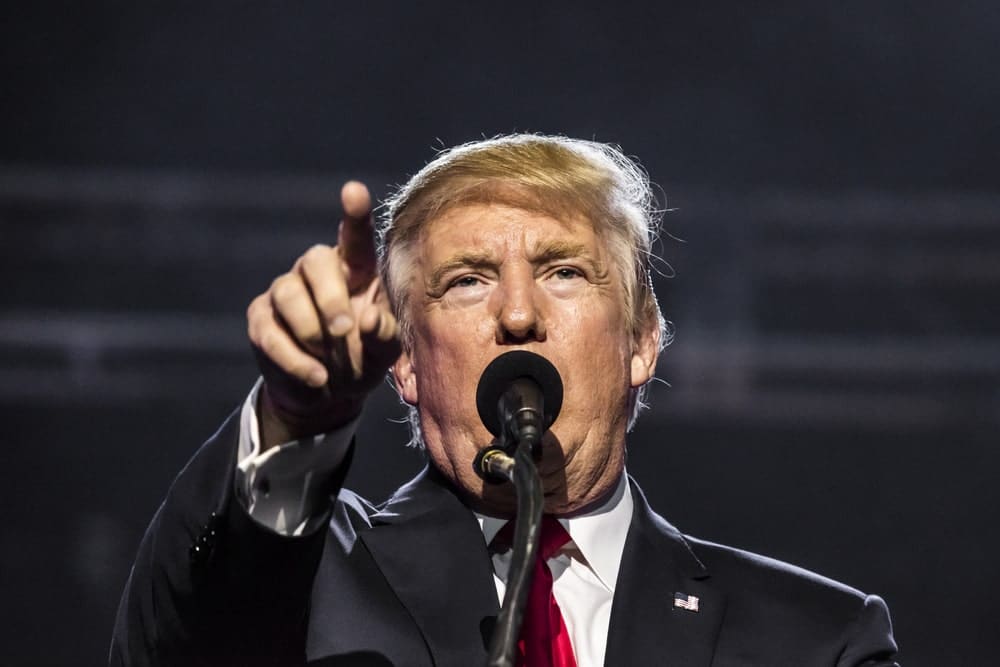During his term as president, Donald Trump’s most noticeable impact on retirement savings was the Setting Every Community Up for Retirement (SECURE) Act, which also became law on January 1, 2020.
By most accounts, this type of bipartisan legislation also improved America’s retirement landscape by fully removing age restrictions on who can access their tax-advanced IRAs. This made it much easier for 401(k)s to offer annuities, eliminating any kind of red tape.
This way, small businesses could pool multiple resources to offer plans to their employees, which would also provide tax credits to small businesses that decided to auto-enroll their workers and raise the required minimum distribution (RMD) age from 70 and a half to 72 years. If Trump wins this year, here’s how your retirement savings might be affected:

ESG funds could face harsh regulations or bans.
Early last year, Trump decided to release a campaign video reinstating his vehement opposition to ESG investing. Short for environmental, social, and governance, fund managers used ESG standards to factor the company’s sustainability and societal impact into decisions about including their stocks among holdings.
The topic has become a political hot button that definitely bleeds into these elections. Only last year, 25 Republican-controlled states decided to file a lawsuit claiming that by allowing retirement advisors to even consider ESG standards, bias clauses in the Employment Retirement Income Security Act and Administrative Procedure Act were violated, which also regulate retirement plans.
A judge fully rejected the lawsuit and decided to keep Biden’s administration’s pro-ESG rules in place. While he was still in office, Trump restricted ESG investing in any kind of retirement plan, affecting no less than $12 trillion worth of capital and 150 million investors.
The Biden administration later reversed the decision, triggering a full-blown lawsuit. If Trump gets re-elected, especially if the GOP succeeds in sweeping Congress, we should all expect strict regulations and even outright bans on ESG in retirement funds and pensions.
When he posted his campaign video, he even mentioned, “We must protect Americans from radical leftist ESG investments. I did it once, and it’s time to do it again as I set the example for Republicans across the country to follow my lead in fighting ESG!”
A trade war might trigger intense market volatility.
One of the distinctive characteristics of Trump’s presidential term was a protracted trade war with China. The president’s weapon was imposing punitive tariffs, which, as a Forbes report confirmed, mostly passed the increased price of imports onto American consumers.
Forbes also outlined how China’s reply to American tariffs made room for stock market turmoil. When Trump levied a 10% tax on almost all the $540 billion in goods the U.S. buys from China on an annual basis, the country responded by “weaponizing” its currency and suspending agricultural purchases as it dug in for a very long fight.
Forbes added: “The markets don’t like this, especially since there is a high chance of recession within the year this trade war heats up.” Probably the last time China devalued its yuan, the S&P 500 tanked by 3.57% in only one day.
That happened in August 2019, and the impending COVID-19 pandemic rendered those predictions academic. However, a second Trump term might put them to a bigger test, as he has vowed multiple times that he intends to renew his trade wars with brand new tariffs on more countries.
Negative impacts on firms and their shareholders
The Wall Street Journal, known as the “center,” lauded Trump’s signature first-term tax package, which basically mitigated the impact of his trade war. However, the publication was less optimistic about the impact of another round of tariffs if he got reelected.
In January 2024, it said, “In his second term, no such tax plan is waiting in the wings. Instead, Trump wishes to expand the trade war he initiated six years ago by hitting a wide range of trading partners with steep new tariffs.
This type of tit-for-tat retaliation, higher costs, and supply-chain disruptions make for a less benign landscape than what we thought would be before the COVID-19 pandemic hit in 2020.” In the wake of the well-known trade war in 2020, Forbes added, “The U.S.-China trade war affected stock prices, which also implied negative impacts on firms and their shareholders.
Shareholders lost a lot of money, and the lower returns to capital cause firms to invest much less.” Forbes also estimated that Trump’s first trade war cost U.S. stock prices $1.7 trillion. If Trump wins, another trade war is likely to emerge. We advise you to work with a financial expert to diversify and hedge against potential stock market turmoil.
Talk to your advisor about bond holdings.
Trump’s signature Tax Cuts and Job Acts of 2017 decided to cut the top corporate tax rate from 35% to 21%. Campaigning for this year, he has vowed to lower it even further to 15%, as reported by CNBC. The Financial Times, also rated “center,” expects Trump to “spend and cut taxes without any restraint,” assuming there would be a united Republican Congress.
This will drive inflation expectations up and bond prices down. The only remaining question is whether the bond market will start pricing this in 2025 or wait until Trump is elected. CNBC, also rated “center,” predicted on January 23 that a “second Donald Trump presidency might trigger a ‘tantrum’ in long-duration bond markets.”
Truth be told, if the economy is strong and the Fed reduces interest rates right after pulling off an expected “soft landing,” which would reduce inflation without triggering a recession, yields will likely rise. Also, if the economy weakens and Trump decides to cut taxes, it will increase spending, or both. In the face of a 6% to 8% deficit, the bond market is more likely to hold steady.

He could also slash auxiliary benefits.
The RSC report recommended limiting and even phasing out the so-called auxiliary benefits for those who are younger than 59 and who earn a minimum of $80,652 annually while still in the workforce.
Probably the most important is the spouse’s insurance benefit, which also allows spouses with no earnings of their own to tap into their spouse’s benefits equal to one-half of the worker’s retirement benefit.
Millennials might use the time they have to prepare for retirement, which doesn’t depend too much on the social safety net. The entire premise is to build a retirement portfolio that isn’t completely reliant on Social Security benefits.
Given the ongoing debates around Social Security’s future, this approach ensures increased flexibility and stability, allowing millennials to navigate possible policy shifts with enough confidence.
Trump will probably leave the program unchanged.
After Trump’s CNBC interview, President Biden and others analyzed his statement and used it as proof that he would gut Social Security if he were to be re-elected. It’s quite an easy position to take, especially since increasing the retirement age, reducing benefits, and instituting income limits or even increasing payroll taxes, which is the last of which Trump consistently opposes—these measures are all widely unpopular.
But the program’s future will eventually require a certain combination of outcomes. According to the Social Security Administration, the trusts that fund the program are still on pace to be depleted by 2034.
When that happens, the program will depend entirely on incoming payroll taxes, and the SSA will be able to pay only 74% of those promised benefits, shorting by over one-quarter of millenials’ future monthly Social Security checks.
If you’re invested in the subject and you’d like to know more, we recommend you read this book by Mary L. Trump.
If you found this article useful, we also recommend checking out: Social Security Check: What Is the First Thing You Should Do With It? (9 Tips)











2 Responses
Sounds like the elitist LEFTIES are worried! Under Trump, MIDDLE CLASS Americans could LIVE/EAT & BE MERRY‼️ Under BUYden/Harris, LIFE SUX‼️🤬
What a bunch of lies. No tax on SSI he proposes is huge. Just cheaper gas and food prices alone are worth his reelection. This must be a democrat writer with bias